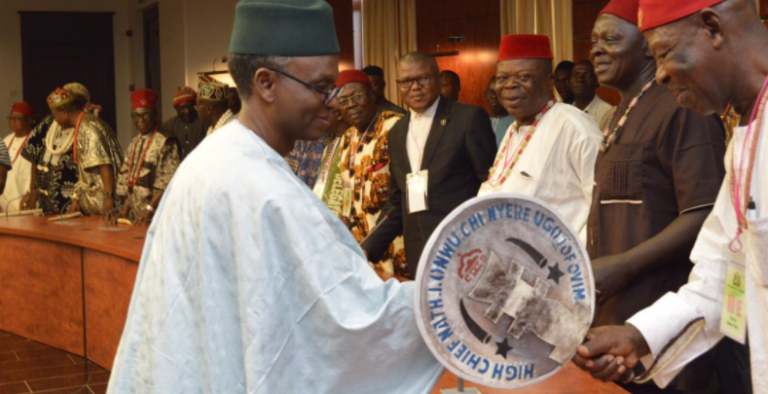Acting President Yemi Osinbajo says the government will expand the solar home system programme to one million households.
The acting president who disclosed this at the Nigeria renewable energy roundtable organised by the ministry of science and technology in partnership with the Nigerian Economic Summit Group (NESG) and Heinrich Boll Stiftung, Nigeria, said the programme would create “a few more million jobs”.
He said the Nigeria renewable energy roundtable must help “to champion this new vision for renewable energy and ensure that we can translate theory to practice for the greater good of the Nigerian people”.
“Going forward, working with the private sector, we also need to create the framework for real-world business cases by developing standardised (and certified) technology packages, standardised contracts and a toolkit for energy cooperatives (with technical, institutional, financing and legal elements),” he said.
Advertisement
“We also need to explore the opportunities for revolving funds for solar PV/wind projects as well as opportunities for other investment remuneration mechanisms. It is also very important that we break the deadlock of electricity market structures by exploring the options to transform the ‘competition for markets’ approach, continue to embark on a broader restructuring of the electricity sector and strive to achieve a more systematic development of the power market design, especially for renewable energy.
“To do that, we need a framework that brings and keeps all stakeholders together towards ensuring that renewable energy becomes an engine of growth for Nigeria’s economy.”
He also said the government was committed to lighting up more rural communities like Wuna, an agrarian village in the Gwagalada local government council of Abuja, which until two years ago was not on the national grid and had no other source of power.
Advertisement
He said the government in collaboration with the Niger Delta Power Holding Company (NDPHC) was able to provide sustainable renewable energy through end to end solution, including a pay-as-you-go system for the community.
“I was in Wuna to see it for myself. For the first time in their existence, the village now has running water, solar powered. The school has power and the school hall is now used as a community hall in the evenings. Each home has four points of light,” he said.
“Children can now stay up and do some studying at night. Many of Wuna’s women can now process their millet and yams at night. New jobs have been created, solar installers, maintenance, payment systems and so on.
“One guy has lost his business in Wuna – the phone charger. Every household can now charge their phones. But he now charges phones of residents of other villages. We are doing 20,000 more homes in this first phase of this exercise and a pay-as-you-go system to 20,000 households to provide access to lighting and electric power for small devices.
Advertisement
“The plan is to expand the solar home system program to one million households, creating a few more million jobs.”
1 comments








great news all the time